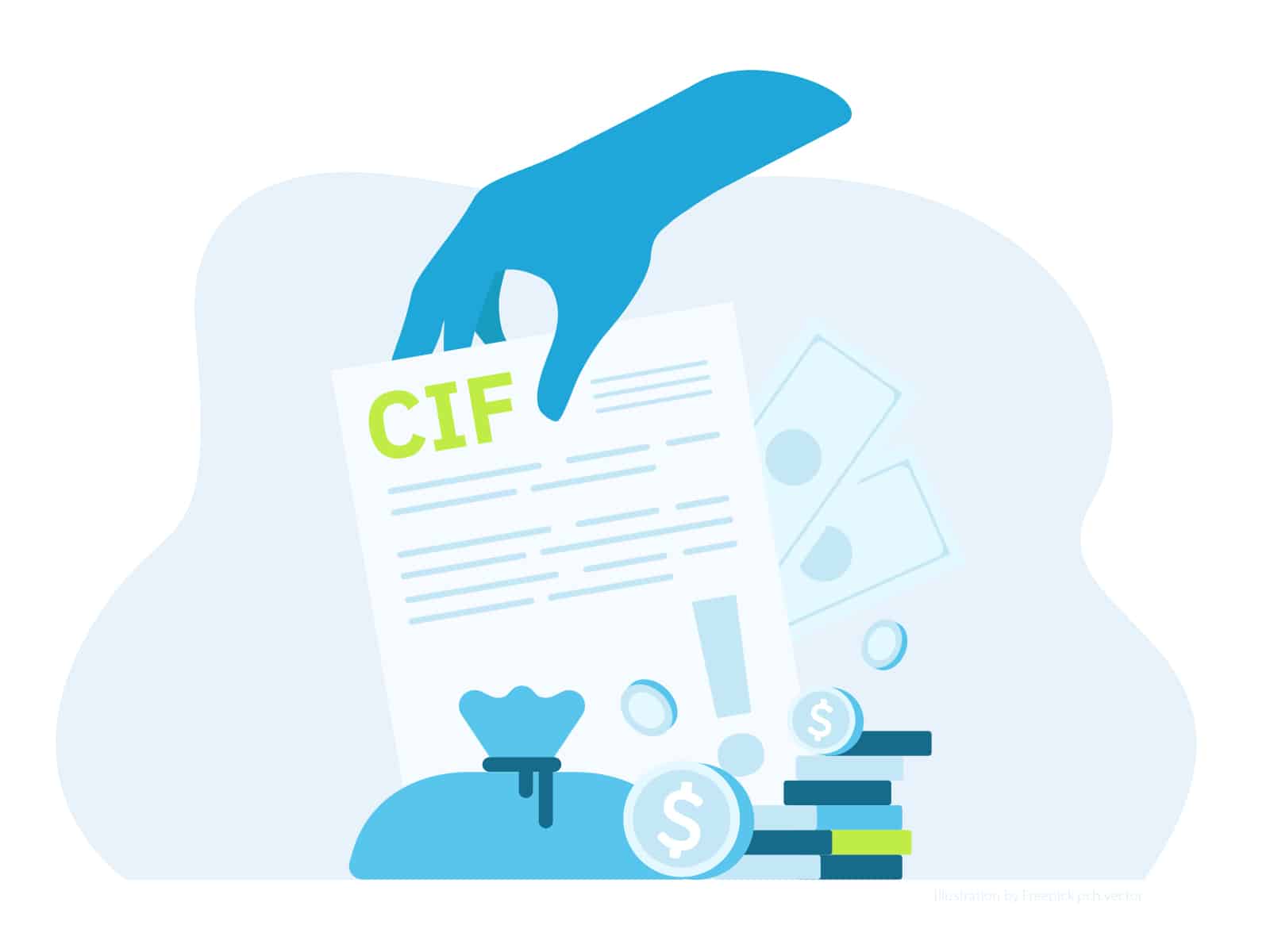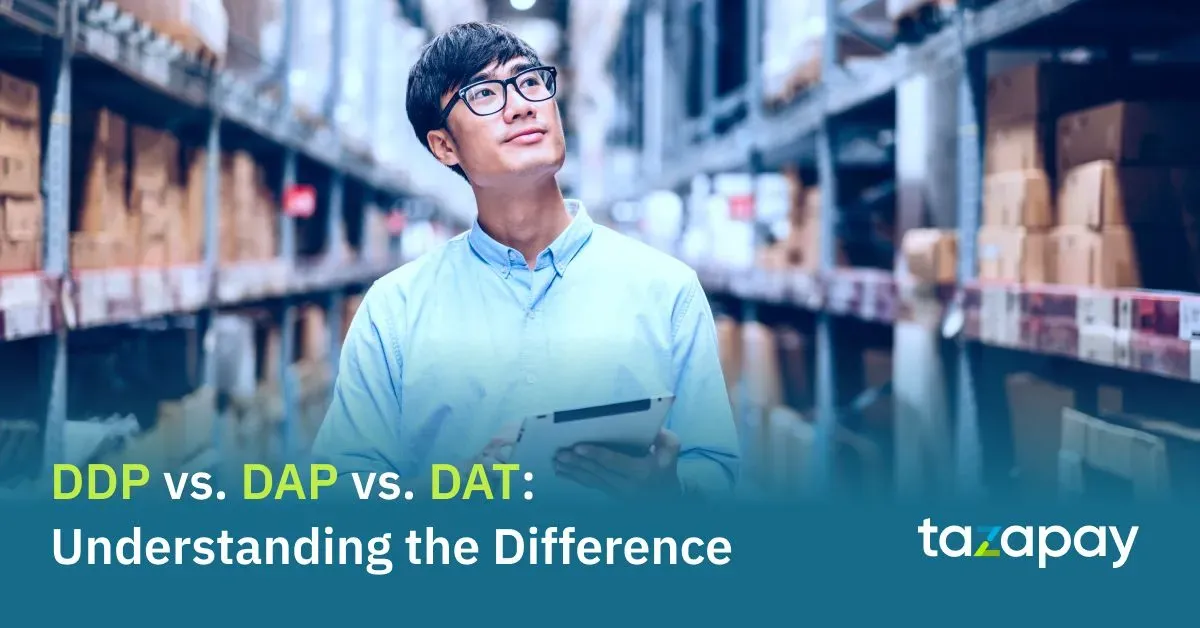- Home
Blog Blog
Customs & Incoterms Customs & Incoterms
Hidden Costs of CIF that You Must Know About
Hidden Costs of CIF that You Must Know About

With shipping, there are myriad things that can go not as planned and this includes CIF. CIF trades usually happen when buyers look for a negotiation where the seller can deliver the goods as well as arrange for transportation and insurance services on behalf of the buyer. To understand CIF shipment meaning better, understand that buyers seek CIF for the convenience of not having to contact forwarding agents, insurance brokers, etc. one by one and hire their services separately to get their supplies at their destination.
But on the other hand, sellers take advantage of CIF price meaning to earn some extra profit for the services they are providing and possibly avail some cost reductions by increasing their business volumes with certain freight agents and insurance brokers. At first, it might seem that buyers are just spending a little extra to get some services hired on their behalf. However, several aspects to it can, if not properly arranged, bring on extra costs, unnecessary risks, and even serious compliance problems for importers.
No one wants to be surprised with a long bill of hidden costs. And when it comes to shipping, those hidden costs can become very expensive. Here is a list of the most common hidden costs of CIF that you must know about:
Demurrage
Demurrage is a penalty charge imposed on buyers if they exceed the free allotted time to clear and collect the goods. The time allotted is specified in terms of the charter agreement. Sellers do not take the trouble to negotiate these terms and conditions as they don’t have to pay up the penalties. Therefore, the buyer will only get the standard terms of the chosen company, which means 4 to 10 days.
This gives the buyer only a handful of days to clear and collect the goods after they arrive in port to avoid demurrage costs. However, in reality, it often ends up taking much longer to complete customs clearance, port logistics, inland transportation, unloading, and returning the container. If the buyer has multiple containers, demurrage can cost much more.
Furthermore, if the seller did not negotiate the local charges such as delivery fees, the buyer will have to pay for whatever the contract with the carrier or the forwarding agent says. Sometimes this may mean that the buyer has to pay up for irrational, superfluous charges, thereby ending up paying a lot more than the normal rates for that service.
Documentation
While exporters complete customs documentation, they don’t have to pay the penalties in case of non-compliance. If they don’t cover the importing country’s requirements in the documentation, then the buyer is liable for the penalties and storage costs. Non-compliance is usually expensive and a lot of money gets spent on penalties and storage at the country of destination.
Logistics and Follow-up Services
When sellers are hiring logistic services for the delivery of goods, they usually look for the cheapest available, such that the profit margins are maximized. This can result in poor services with longer transit times, unreliable carriers, and even routing problems. The goods can take several extra days to arrive and delay or even ruin the buyer’s plans for that shipment. The extra time can cost a lot more than the money saved with that cheap freight.
Plus, on CIF trades it is common not to get any follow-up service and assistance from a forwarding agent concerning the shipment. Few sellers care to assist their customers on this matter. Usually, they provide an ETA and send the freight bill. The lack of follow-up would mean that the buyer’s shipment could arrive sooner or later than expected, resulting in extra warehousing and demurrage costs.
Damage or Loss of Goods
If goods are damaged, or the container is lost in transit, the buyer must make the insurance claim. This effectively means that they have to deal with a shipping company and insurer with whom they do not have any previous contact or business relationship as they didn’t organize the policy themselves. This is when problems with the insurance policy, insured value, contract terms, and conditions come up. The chances that the beneficiary of the insurance, that is the buyer, won’t get what they were expecting are high.
Fraud Risk
Frauds are major risks when a trader is dealing with suppliers abroad. The risk of fraud is higher when CIF is involved. The buyer would receive a quote from the seller believing they are getting a good deal on the freight only to find that they have been overcharged by the receiving agent who might as well remit part of the funds to the exporter who sold the freight.
Some importers have lost huge sums of money using CIF because there is no guarantee that the seller has loaded the container with the goods they paid for. Unless the buyer sends a representative to the location of export to follow container stuffing and loading, they cannot be sure of what is in the shipment until they unpack the shipment, which, as you know, happens long after the funds have been remitted and the seller has disappeared.
What are the different levels of insurance coverage in CIF and CIP?
The Incoterms 2020 rules provide for different levels of insurance coverage in the Cost Insurance and Freight (CIF) rule and Carriage and Insurance Paid To (CIP) rule.Under the CIF Incoterms rule, which is reserved for use in maritime trade and is often used in commodity trading, the Institute Cargo Clauses (C) remains the default level of coverage, giving parties the option to agree to a higher level of insurance cover.
However, Under the CIP Incoterms rule now requires a higher level of cover, compliant with the Institute Cargo Clauses (A) or similar clauses.
Category

Customs & Incoterms
Hidden Costs of CIF that You Must Know About
Related Articles

DDP vs. DAP vs. DAT: Understanding the Difference

2010 vs. 2020: What Has Changed in Incoterms






